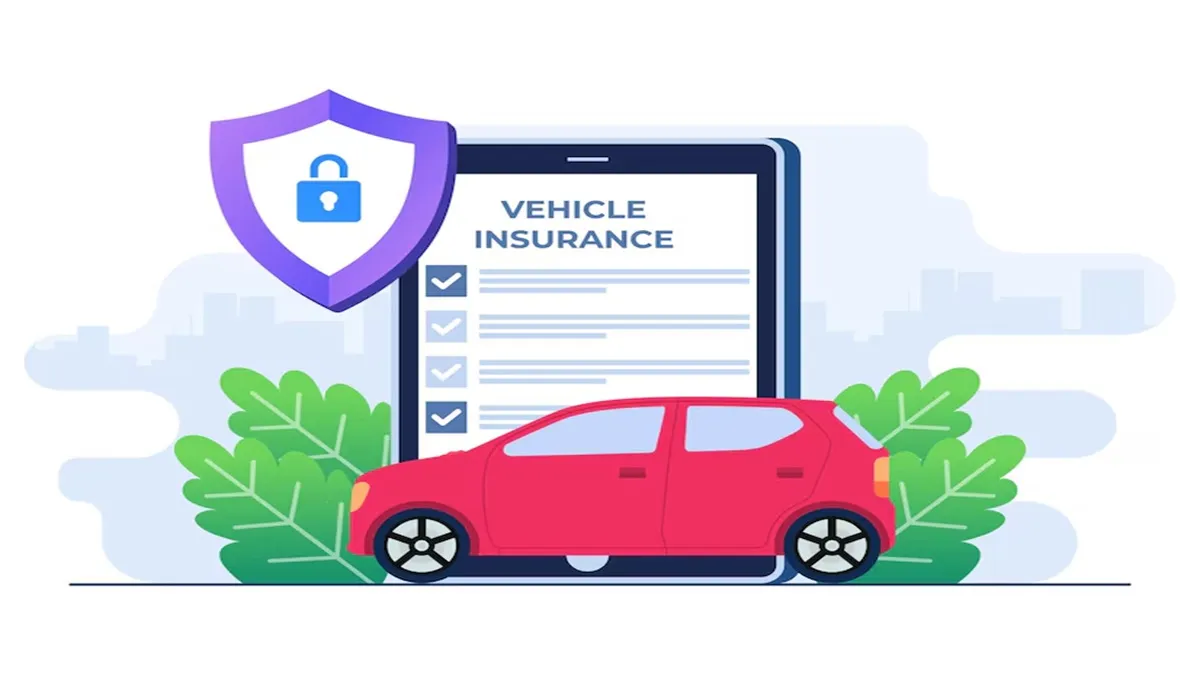Solar energy has become increasingly popular across California due to the state’s sunny climate, environmental goals, and rising electricity costs. Many homeowners are investing in solar panels to reduce utility bills and lower their carbon footprint. However, with any home improvement, especially one involving valuable equipment like solar panels, it’s important to understand how your homeowner’s insurance covers such installations.
In this blog, we’ll dive deep into whether Citizens Insurance covers solar panels in California, the nuances of solar panel insurance coverage, how insurance policies generally treat solar installations, and important considerations for California homeowners.
1. What is Citizens Insurance?
First, it’s important to clarify that Citizens Property Insurance Corporation is a state-backed insurer created by the Florida government. It was established to provide insurance to homeowners who are unable to obtain coverage in the private market, especially in high-risk hurricane areas in Florida.
Key Points about Citizens Insurance:
- Operates in Florida only: Citizens Insurance is Florida’s insurer of last resort and does not operate in California.
- Purpose: Provides coverage for properties that private insurers reject due to high risk.
- Coverage: Citizens offers standard homeowner policies, which may include dwelling, personal property, liability, and other coverages.
Implication for California:
Because Citizens Insurance is Florida-specific, it does not provide insurance coverage in California, including for solar panels. California homeowners will not have Citizens as an option and must look at other insurers, including private carriers and the California FAIR Plan.
2. How Are Solar Panels Covered Under Homeowners Insurance?
Even though Citizens Insurance isn’t available in California, understanding how such policies treat solar panels gives insight into typical insurance treatment.
Solar Panels as Part of Your Home
- Permanently installed solar panels, usually mounted on the roof, are typically considered part of the dwelling. This means they often fall under the dwelling coverage of your homeowner’s policy.
- Detached solar panels, such as ground-mounted arrays, might be covered under the “other structures” portion of your policy, which usually has lower coverage limits.
Coverage Types That May Apply to Solar Panels
- Dwelling Coverage: Covers the physical structure of your home, including roof-mounted solar panels if they are permanently attached.
- Other Structures Coverage: Covers detached structures on your property (e.g., fences, sheds), which could include ground-mounted solar panels.
- Personal Property Coverage: May not cover solar panels as they are usually considered fixtures.
- Additional Coverage: Some policies may offer endorsements or add-ons specifically designed to cover solar energy systems.
Covered Perils for Solar Panels
Your solar panels are typically covered against perils included in your policy, such as:
- Fire
- Vandalism
- Theft
- Lightning
However, damage caused by some perils may be excluded or limited:
- Wind and hail damage may or may not be covered depending on your insurer and your policy terms.
- Wear and tear, mechanical breakdown, or gradual deterioration are typically not covered.
Key Takeaway:
You must carefully review your homeowner’s policy and speak with your insurance agent to understand if your solar panels are covered and under what conditions.
3. Insurance Challenges Specific to Solar Panels in California
California is unique due to its high exposure to natural hazards like wildfires, earthquakes, and droughts. These risks influence insurance availability and coverage terms.
Wildfire Risk
- Wildfires have led many insurers to increase premiums, restrict coverage, or decline to insure properties in high-risk areas.
- Solar panels might be exposed to wildfire damage, and some insurers may exclude or limit coverage for solar-related damages caused by wildfires.
Earthquake Coverage
- Standard homeowner’s policies do not cover earthquakes, so solar panels are not covered for earthquake damage unless you purchase a separate earthquake policy or endorsement.
California FAIR Plan
- The FAIR Plan is a state-mandated insurer of last resort that provides basic fire insurance coverage for high-risk properties.
- However, the FAIR Plan does not offer comprehensive coverage for solar panels or other specialized home features. It mainly covers fire damage to the dwelling itself.
Private Insurance Market
- Some private insurers in California offer policies that include solar panel coverage.
- Premiums may be higher in wildfire-prone areas.
- Insurers may require specific installation standards or certifications for solar panels to be covered.
4. Steps to Ensure Your Solar Panels Are Covered in California
To protect your solar investment, here’s a step-by-step guide for California homeowners:
Step 1: Inform Your Insurance Provider About Solar Panels
- Notify your insurer when you install solar panels.
- Ask if your current policy automatically covers solar panels or if additional coverage is required.
Step 2: Review Your Homeowner’s Policy
- Carefully read your policy to identify any exclusions or coverage limits related to solar panels.
- Check the limits for “other structures” coverage if your solar panels are ground-mounted.
Step 3: Consider Adding Endorsements or Riders
- Ask if you can add an endorsement that explicitly covers solar panels.
- Some insurers offer specific renewable energy endorsements that protect your panels and related equipment.
Step 4: Maintain Detailed Documentation
- Keep installation contracts, permits, and warranties.
- Take photos of the panels and electrical connections for your records.
Step 5: Regular Maintenance and Inspection
- Maintain your solar panels to prevent damage.
- Some insurers may require inspections to validate coverage eligibility.
Step 6: Understand Your Deductibles and Claim Limits
- Know your policy deductible, especially if damage occurs.
- Be aware of any sub-limits on coverage for solar panels.
5. What If Your Insurance Provider Doesn’t Cover Solar Panels?
If your insurer does not cover solar panels adequately:
- Shop around: Look for other insurers with specific solar coverage.
- Use specialized solar insurance: Some companies specialize in insuring solar energy equipment.
- Consider separate solar insurance policies: These policies focus solely on your solar system.
- Work with your solar installer: Some installers offer insurance or warranties that can supplement your homeowner’s policy.
6. Common Myths About Solar Panel Insurance Coverage
Myth 1: Solar Panels Are Automatically Covered
Fact: Not all homeowner’s policies cover solar panels by default, especially if they are ground-mounted or detached.
Myth 2: Solar Panels Increase Homeowner’s Premiums Significantly
Fact: Premium increases vary by insurer and location; some insurers charge little to no additional premium for solar panels.
Myth 3: Solar Panels Are Covered Against All Types of Damage
Fact: Coverage depends on your policy. Perils like gradual wear, theft without evidence, or flooding may not be covered.
7. Why Is Insurance for Solar Panels Important?
- High Replacement Cost: Solar panels and inverters can cost thousands of dollars to replace.
- Weather Exposure: Panels are exposed to weather hazards, increasing risk.
- Home Value: Solar installations increase home value, so protecting them preserves your investment.
- Peace of Mind: Knowing your panels are covered allows you to enjoy the benefits without worry.
8. Final Thoughts
Does Citizens Insurance Cover Solar Panels in California?
No. Citizens Property Insurance Corporation does not operate in California, so it does not provide any insurance coverage for solar panels or any other property in the state.
What Should California Homeowners Do?
California homeowners should:
- Work with private insurance carriers or the California FAIR Plan for basic coverage.
- Verify whether solar panels are included in the policy and seek endorsements if needed.
- Understand the impact of California’s wildfire and earthquake risks on their coverage.
- Maintain detailed records and ensure proper maintenance of solar equipment.
Summary
- Citizens Insurance is Florida-only and does not provide coverage in California.
- Solar panels can be covered under homeowners insurance but coverage varies.
- California has unique insurance challenges due to natural hazards.
- Homeowners should review policies carefully and seek appropriate endorsements.
- Specialized solar insurance or separate policies may be needed in some cases.
By being proactive and informed, California homeowners can protect their solar investments and enjoy sustainable energy with confidence.
If you have solar panels or are planning to install them, make sure to discuss your insurance needs with a qualified agent familiar with California’s insurance market. Protect your home, protect your solar panels, and harness the power of the sun worry-free!
FAQ: Solar Panel Insurance Coverage in California and Citizens Insurance
1. Does Citizens Insurance provide coverage in California?
No. Citizens Property Insurance Corporation is a Florida-based, state-backed insurer of last resort and does not operate in California. If you’re a California homeowner, you will need to explore private insurers or the California FAIR Plan for home insurance coverage.
2. Are solar panels covered under homeowners insurance in California?
Yes, in many cases. If the solar panels are permanently attached to your roof, they are often covered under your dwelling coverage. However, if they are ground-mounted or part of a detached structure, they may fall under “other structures” coverage, which typically has lower limits. Always check your individual policy.
3. Are there any special insurance requirements for solar panels in California?
There are no statewide insurance requirements specific to solar panels, but:
- Some insurers may ask for professional installation documentation.
- High-risk areas (e.g., wildfire zones) may have stricter underwriting standards.
- You may need to add a rider or endorsement to ensure full coverage.
4. What types of damage to solar panels are usually covered?
Most standard homeowners insurance policies cover solar panels for perils like:
- Fire
- Hail
- Windstorms (unless excluded)
- Vandalism
- Theft
Damage due to wear and tear, mechanical breakdowns, or poor maintenance is generally not covered.
5. Will installing solar panels increase my insurance premium?
Possibly. Your premium may increase slightly because:
- Solar panels increase the replacement cost of your home.
- They add value and functionality, requiring more coverage.
However, some insurers may not increase your rate significantly, especially if you have updated wiring or your panels reduce electrical fire risks.
6. Are ground-mounted solar panels covered differently than roof-mounted ones?
Yes. Ground-mounted panels are usually classified under “other structures” coverage and may have lower policy limits compared to roof-mounted panels, which are typically part of the main dwelling coverage. Always confirm with your insurer.
7. What happens if I lease my solar panels?
If your solar panels are leased, they are often owned and insured by the leasing company, not you. However, your policy may still cover liability for damages caused by the system or damage to your home related to it. Check your lease agreement and insurance policy.
8. Can I get separate insurance for my solar panels?
Yes. Some insurance companies offer solar-specific policies or endorsements if your homeowner’s policy doesn’t provide adequate protection. This can be a good option if:
- You live in a high-risk area
- Your insurer excludes solar panels
- You have a large or complex system
9. Does the California FAIR Plan cover solar panels?
The California FAIR Plan provides basic fire insurance for homes in high-risk areas but does not cover solar panels comprehensively. You may need a “Difference in Conditions” (DIC) policy from a private insurer to obtain full coverage.
10. What documents should I keep for insurance purposes after installing solar panels?
- Purchase receipts or lease agreements
- Installation contract and proof of professional installation
- Warranty information
- Inspection reports
- Photographs of the system
- Maintenance records
Keeping these on file helps speed up insurance claims and ensures accurate valuation.
Read More:



